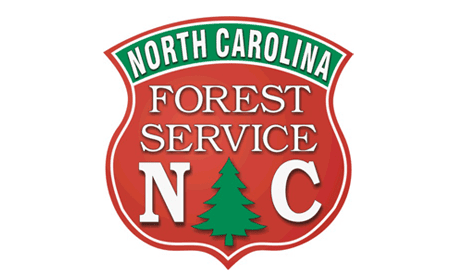Agriculture Commissioner Steve Troxler today banned open burning and canceled all burning permits for 22 more counties in Western North Carolina. Added to the list are Alleghany, Anson, Ashe, Cabarrus, Caswell, Davidson, Davie, Forsyth, Guilford, Iredell, Mecklenburg, Montgomery, Randolph, Richmond, Rockingham, Rowan, Stanly, Stokes, Surry, Union, Wilkes and Yadkin counties.
The burning ban will take effect at 5 p.m., Monday, Nov. 21, and will be in effect until further notice.
Under North Carolina law, the ban prohibits all open burning in the affected counties, regardless of whether a permit was issued. The issuance of any new permits also has been suspended until the ban is lifted. Violation of the ban carries a $100 fine plus court costs of $180.
The ban on open burning is necessary because of the dry weather conditions and the potential for the increase in human-caused wildfires in the region. As of Nov. 20, there have been 3,021 wildfires affecting more than 19,058 acres on state protected lands across North Carolina this year. In the mountains alone, there have been 1,203 fires that have burned 4,015 acres.
Those numbers do not include fires burning on federal lands, the Party Rock fire near Lake Lure and the Chestnut Knob fire. The Party Rock fire has burned 7,171 acres since it was first reported on Nov. 5. The Chestnut Knob fire, burning in the South Mountain State Park, has burned 6,433 acres since it was first reported on Nov. 6. These fires, combined with those on federal lands, have burned closed to 46,000 acres in Western N.C. State protected lands include state and private owned properties.
“Fire experts with the N.C. Forest Service feel the current drought situation and the increase in available forest fuels makes it necessary to increase the number of counties under the burn ban,” said Agriculture Commissioner Steve Troxler. “We want to be proactive in our approach and take appropriate action to prevent the potential for human-caused wildfires.”
An open burn ban is now in place for the entire counties of Alexander, Alleghany, Anson, Ashe, Avery, Buncombe, Burke, Cabarrus, Caldwell, Caswell, Catawba, Cherokee, Clay, Cleveland, Davidson, Davie, Forsyth, Gaston, Graham, Guilford, Haywood, Henderson, Iredell, Jackson, Lincoln, Macon, Madison, McDowell, Mecklenburg, Mitchell, Montgomery, Polk, Randolph, Richmond, Rockingham, Rowan, Rutherford, Stanly, Stokes, Surry, Swain, Transylvania, Union, Watauga, Wilkes, Yadkin and Yancey.
Here are a few facts about the law regarding the ban on open burning:
- The burn ban does not apply to cooking fires such as grills or outdoor cookers.
- The ban does not apply to a fire within 100 feet of an occupied dwelling. County fire marshals have jurisdiction over open burning within 100 feet of an occupied dwelling. The N.C. Forest Service has advised county fire marshals of the burning ban and asked for their consideration of also implementing a burning ban. In addition, other local ordinances and air quality regulations may also impact open burning.
- If a fire within that 100-foot area escapes containment, a North Carolina forest ranger may take reasonable steps to extinguish or control it. The person responsible for setting the fire may be responsible for reimbursing the N.C. Forest Service for any expenses related to extinguishing it.
- Open burning includes burning leaves, branches and other plant material. In all cases, it is illegal to burn trash, lumber, tires, newspapers, plastics or other non-vegetative materials.
- Outdoor burning is also prohibited in areas covered by Code Orange or Code Red air quality forecasts.
Local fire departments and law enforcement officers are assisting the N.C. Forest Service in enforcing the burn ban.
Fire Prevention Education Team deployed to region
A U.S. Forest Service Fire Prevention Education Team is working in Western North Carolina in an effort to decrease the number of human-caused wildfires there. In addition to assisting with information on these wildfires, the team is working with communities, distributing information and working with the media to raise awareness about the current fire danger. In addition a joint information center has been established to help provide information to the media and the public. The JIC can be reached at 828-575-2352 or by email at ncjicinformation@gmail.com.
You can also contact Brian R. Haines at 919-857-4828. Residents with questions regarding their specific county can contact their county ranger with the N.C. Forest Service or their county fire marshal’s office.






